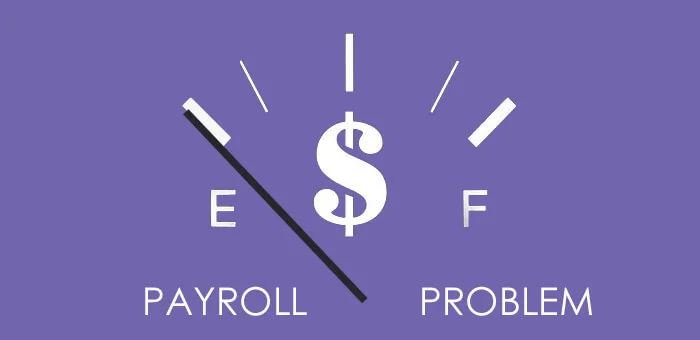6 Common Business Loan Mistakes
Taking out a business loan takes a lot of planning and forethought. Like most major financial decisions involving your business, you should never rush into a loan without thinking about the potential consequences. Moreover, you should try to avoid common missteps that many business owners fall into during the loan application process. In today’s guide, we are going to take a closer look at 6 of the most common business loan mistakes to avoid.
Applying For The Wrong Type Of Business Loan
First and foremost, it is vital to understand that there are many different types of business loans. A standard small business loan is typically long-term, but you may not want to have your business weighed down by debt for the next 5 to 10 years (or longer). For this reason, you first must decide if you want a short-term business loan or a long-term business loan.
However, even the length of the loan will not give you a full picture of the benefits and drawbacks. When looking at traditional lending institutions, you can usually secure a lower interest rate with long-term loans, but you could still end up paying more in interest, especially if you do not have the option to pay off the loan early. Alternatively, a short-term loan with higher interest rates could put a lot of pressure on your business to repay large amounts quickly.
This is why you must also consider the type of lender when applying for a business loan. For example, a Merchant Cash Advance (MCA) loan will typically give you a lump sum of cash upfront, but you will have to repay it by giving up a percentage of future payments to the lender. Additionally, this type of lender tends to charge high fees, greatly reducing your ability to turn a profit with the funds. Alternatively, you can get a low-interest, short-term payroll loan through a payroll funding company like Payro Finance that is specifically designed to help you cover the costs of paying employees if and when you are experiencing temporary cash flow issues.
Borrowing More Than Your Cash Flow Allows
If you are having cash flow problems, you will likely look to a business loan as your first course of action. A quick influx of funds can help ease the burden of cash flow management. However, you should understand exactly how the money needs to be used and have a repayment plan in place. Otherwise, you could find yourself in a situation in which you either cannot make your payments or cannot get enough funds to keep your business afloat.
For example, if you borrow too much, you could struggle to repay the loan on time. This could greatly affect your business credit and even put some of your business assets at risk. On the other hand, if you end up borrowing too little, you may not be able to use the funds to generate additional revenue or see your business through until the cash flow problems have subsided. Consequently, you will need to weigh the benefits and possible repercussions of managing cash flow issues with a business loan before you apply.
Inconsistent Business Documentation
Lending institutions and payroll financing companies do not give out loans to just any business. You will need to prove that you have a viable business with sustainable income to get a loan. In many cases, you may need to have been in business for a minimum of 2-3 years just to qualify for a standard business loan.
Thus, it is vitally important to have all of your business documentation in order. These documents can include your articles of incorporation, operating agreement, and profit and loss statement — just to name a few. If there are any red flags or inconsistencies in your financials, business names, EIN, address, or other basic information, your application could be denied on the spot.
Not Having A Business Plan
Whether you are a brand new business looking for funding or you’ve been in business for years, you need to show that you have a plan in place for the borrowed funds. No lender will want to hand over funds unless they understand exactly how you intend to use them. As a result, you will need to provide a basic business plan (for new businesses) and/or comprehensive financial projections.
Writing down a small business plan does not need to be difficult or arduous. You simply need to record the basic details of your company, including what you provide (products and services), where you operate, your mission statement, as well as a breakdown of your expenses and income. Generally, the more information you can provide, the better chance you will have of securing a favorable business loan.
Not Understanding The Loan Costs
The costs of business loans are by far one of the most important factors to consider before signing on the dotted line. Lenders have to make money, which is why they charge loan fees and interest on loans. While favorable interest rates or delayed repayment options may seem enticing, you should always do the math first to make sure you are getting a good deal.
Just as importantly, you need to read the fine print of the loan terms and conditions. In many cases, you will find that there are hidden costs or unrealistic repayment terms in the loan agreement. By calculating exactly how much you would need to pay in fees, payments, and interest, you can see the real cost of the loan. Understanding these numbers will help you determine if a business loan is worth it or if it will end up costing your business too much.
Not Working On The Business Loan Requirements Before Applying
As previously mentioned, banking institutions and other lenders do not give out funds to any business that asks for them. There are strict requirements for business loans that you will need to meet before the lender will even consider you for a loan. This means that, rather than simply applying as soon as possible, you should review your company’s financial standing to see if you qualify for a loan.
One of the first steps you should take is getting a business credit report. Like a personal credit report, this will supply you with a Paydex score. This score generally reflects your business’ history of paying back loans on time and its creditworthiness for future loans. While there are various factors that go into a Paydex score, your business cash flow will also play a part.
Thus, you need to make sure that your business is in a good financial position before applying for a loan. In addition to taking steps to increase your Paydex score, you should also ensure that you have collateral if necessary. With collateral, you can get a secured loan that will often come with lower fees and interest rates. However, if you do not have collateral prepared or are unwilling to provide collateral, you will only qualify for an unsecured loan, which could end up costing you far more. Alternatively, if you work with a payroll funding company like Payro Finance, you can secure an affordable small business loan for payroll without the need to go through all of the hoops associated with a loan from a traditional lender.
So, are small business loans for payroll right for you? If you’re interested in learning more about the advantages of payroll funding, feel free to reach out to Payro Finance today!
Morris Reichman
hello@payrofinance.comMorris Reichman is the founder and CEO of Payro Finance. Former Vice President at Infinity Capital Funding an alternative finance company, Morris possesses a versatile background in the finance industry. Having spent 7+ years working across global macro operations and start up corporate finance Morris's expertise is in business accounting, risk management and investment analysis. Morris founded Payro Finance to support business owners and ensure their business continuity.
Need a short-term loan to cover payroll?
Apply in under two minutes, and get approved within 2 days. Once approved, funds are in your account the same day.
- Always 1.5% weekly
- Up to $500,000
- Same-day funding


